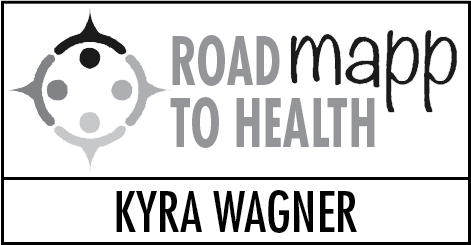Editor’s Note: MAPP, Mobilizing for Action through Planning & Partnerships, is a local coalition that aims to use and build upon our strengths to improve our individual, family and community health. Health is defined broadly to include cultural, economic, educational, environmental, mental, physical and spiritual health.
It’s a new year. Did you come up with a list of resolutions or decide to throw them all out and just make it through another day? Here I am writing an article about community health, but I have to tell you, it’s not my job. It’s yours.
The fact is, you cannot have a strong resilient community if all the residents that make up the population are stressed out and at their limit. During the last MAPP assessment 3 years ago we realized that many issues families struggle with are due to being pushed to the limits of time and money, patience and endurance.
So community resilience actually starts with the individual. How can you be more at peace? How can you best design your day so it feeds rather than drains you? A doctor can’t prescribe that, but it’s the best way to be healthy. Imagine if you told your doctor that you didn’t feel well and he said:
“I want you to meditate for 20 minutes twice a day, exercise for at least 30 minutes a day, avoid processed foods, eat plenty of organic fruits and vegetables, spend more time in nature and less indoors, stop worrying about things you cannot control and ditch your TV. Come back in 3 weeks.”
Taking care of your self is the core of all health. You cannot effectively take care of someone or something else until you are stable yourself. Like the stewardess tells us, “Put on your own oxygen mask before assisting others.”
This is a really old message. Why do we hear it all the time yet still ignore it? Megan Murphy, coordinator of MAPP, recently sent me a quote from a 1946 article that she found at her grandparents’ home while visiting over the holidays. It said, “Natural belief in self makes your life happier.”
How can we achieve that wellbeing? The first step of course is knowing where you are at in the first place. How much time during your day do you spend in a reactive rather than receptive state? How often do you say no rather than yes? Try saying it out loud. You can feel it in your body, how yes feels and how no feels.
According to Dr. Dan Siegel, “these negative states are based on threat, and our whole system becomes unhealthy.” Reactive negative states come in the form of anxiety, anger, fear, sadness, maybe despair. These drag you down, we all know that. The more time you spend in a reactive state, the more time your body is set for that age-old instinctive fight or flight, flee or faint. That defensiveness is tiring.
How can we instead focus on thriving and flourishing? This is where the receptive state comes in. All the emotions associated with the positive receptive state are the emotions like kindness, compassion, caring, love, empathy, connection, joy and gratitude. Just say those things out loud and pay attention to that little uplift you will feel. The receptive state is simply the gateway to wellness.
Psychologist Shawn Achor calls this the Happiness Advantage. Achor states that, “Your brain in positive performs significantly better than in negative, neutral or stressed. Your intelligence rises, your creativity rises, energy levels rise. In fact, what we found is that every single business outcome improves. Your brain in positive is 31% more productive than in negative, neutral or stressed.”
Achor also would say that 90% of your long-term happiness can be predicted not by the external world but by how your brain processes the world. Is your happiness tied to some future success? How can you bring happiness and that receptive state to every day? It may take some exercise.
I’m not talking about exercise like jogging, though some folks may have that as one of their new year’s resolutions. A resolution to take care of yourself, put on your own oxygen mask, actually can be easier than that. Exercising that positive state can also include journaling a positive experience every day, doing a random act of kindness, or noting three things you are grateful for each day.
We have plenty of negative input from the world around us but for our own health we need the positive. Then we can be strong for our friends and family and help them into a state of positivity. Then we can help our coworkers. Then we can help our community.
So this new year, take care of yourself. Be happy. The world depends on it.
Kyra Wagner is the coordinator of Sustainable Homer and a member of the MAPP steering committee.



